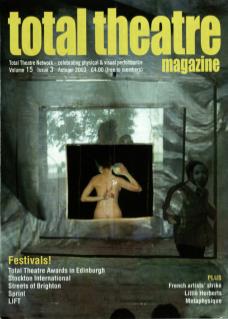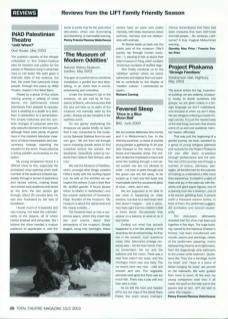The queue enters the big impersonal building: we are ordered, brusquely, loudly, to divide ourselves into groups; we are given orders in a foreign language we don't understand, and shouted at when we don't obey. We are refugees entering a hostile foreign country. It's just the merest taste of the real thing, but even that shocks some of us and one audience member leaves, affronted.
That was just the beginning of a gentler journey we took, escorted by a group of young refugees gathered and nurtured by the Project Phakama UK who offer them re-creation through performance and the arts. The rest of the journey was through a number of rooms, stairways, passages, all transformed for the purpose of making us understand a little more their experience. It ended in a spirit of hope and joy, in the open air, with fireworks and giant paper figures, one of a starving man like a skeleton, one of a fat woman gobbling food. A picture worth a thousand column inches. In front of them the performers juggled, did acrobatics and danced exuberantly.
The discussion afterwards revealed that the show had been put together in five days. The huge building loaned by the National Children's Homes, had been transformed with murals, poems and paintings, videos of the performers speaking, rooms representing dreams and nightmares, from the disgustingly dirty bathroom to the purest white bedroom. Quotations like 'They put a bandage round my heart' and 'Hope is a piece of bread hanging far away’ are pinned on the stairwells. We were guided from room to room. At the end, my young companion said how it all made the stuff on the telly and in the papers real at last. LIFT did well to make this happen...

